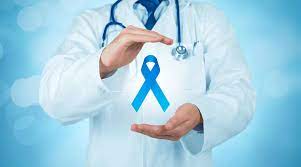Introduction
Cancer is a global health challenge that affects millions of people every year. The impact of this disease is far-reaching, touching the lives of patients, their families, and communities. While there have been significant advancements in cancer treatment and research, early detection and prevention remain essential in the fight against this devastating illness. A cancer awarness program is a critical initiative that can help educate the public, raise awareness, and ultimately save lives.
Understanding the Importance of Cancer Awareness
Cancer awareness programs play a vital role in educating individuals about the risk factors, early signs, and preventive measures associated with various types of cancer. These programs serve as a bridge between the medical community and the general public, helping to demystify the disease and empower individuals to take proactive steps in their own health.
Early Detection Saves Lives
One of the most critical aspects of cancer awareness programs is the emphasis on early detection. The earlier cancer is diagnosed, the more treatment options are available, and the better the chances of survival. Regular screenings and self-examinations for certain types of cancer, such as breast, prostate, and skin cancer, can significantly increase the likelihood of identifying cancer in its early stages when it is most treatable.
Promoting Healthy Lifestyle Choices
Cancer awareness programs also focus on promoting healthy lifestyle choices. Many types of cancer are linked to modifiable risk factors such as smoking, poor diet, lack of physical activity, and excessive alcohol consumption. These programs educate individuals on the importance of making healthier choices, which can help reduce the risk of developing cancer.
Dispelling Myths and Fears
Cancer awareness programs address misconceptions and fears surrounding cancer. They provide accurate information about the disease, its causes, and treatment options, reducing the stigma and fear associated with a cancer diagnosis. This is particularly important in encouraging people to seek medical attention when they notice symptoms or risk factors.
Empowering Patients and Caregivers
Cancer awareness programs are not just for the general public. They also play a crucial role in supporting cancer patients and their caregivers. These programs provide resources, information, and a sense of community for those affected by cancer. Empowering patients and their loved ones with knowledge and support can improve the overall cancer care experience.
Raising Funds for Research
In addition to education and support, cancer awareness programs often have fundraising components to support cancer research. Research is the backbone of medical progress, and funding is essential for discovering new treatments, improving existing therapies, and ultimately finding a cure for cancer.
Collaboration and Advocacy
Cancer awareness programs often involve various stakeholders, including healthcare professionals, nonprofits, government agencies, and community organizations. Collaboration among these groups can lead to more effective awareness campaigns, increased access to screenings, and improved cancer care services. Advocacy for policies that support cancer research and treatment is another critical aspect of these programs.
Conclusion
Cancer awareness programs are a lifeline in the fight against cancer. By promoting early detection, healthy lifestyles, and dispelling myths, they empower individuals to take control of their health and make informed decisions. Moreover, these programs offer support and resources to patients and their caregivers and contribute to fundraising efforts for critical research. As the global community continues to battle cancer, it is essential to recognize the importance of these initiatives and support them to save lives and improve the quality of life for those affected by this disease.





Comments